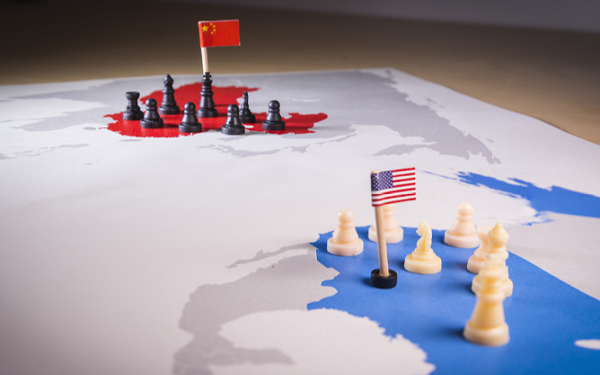
NexOptic Technology Corp (TSXV: NXO)
You’ll Never See The World The Same Way Again

The trade agreement President Donald Trump signed with China on Wednesday includes provisions on intellectual property enforcement and protections against forced technology transfers.
The two issues could have important consequences on the technology industry, which itself has a tenuous relationship with China due to suspicions over how officials can access data housed there.
The U.S. and China agreed that people from each country will “be able to operate openly and freely in the jurisdiction of the other Party without any force or pressure from the other Party to transfer their technology to persons of the other Party.” Any transfers of technology or licenses between people of each country must be voluntary, according to the agreement.
The countries also agreed to a provision to prevent either state from directing or supporting domestic companies from acquiring foreign technology in sectors and industries “that create distortion.” This provision gets to the heart of new rules unveiled by the Treasury Department on Monday that attempt to provide further scrutiny over foreign investments in U.S. companies for national security reasons. The rules would require more transactions between foreign investors and U.S. firms to seek clearance from the Committee on Foreign Investment in the United States.
CFIUS has already cracked down Chinese investments of this sort. Last year, health tech start-up PatientsLikeMe was forced to find a buyer after CFIUS forced its Chinese majority owner to divest its stake, CNBC reported in April.
Here’s what the trade agreement says about forced tech transfer:
Natural or legal persons (“persons”) of a Party shall have effective access to and be able to operate openly and freely in the jurisdiction of the other Party without any force or pressure from the other Party to transfer their technology to persons of the other Party.
Neither Party shall require or pressure persons of the other Party to transfer technology to its persons in relation to acquisitions, joint ventures, or other investment transactions
China also agreed to create an action plan to “strengthen intellectual property protection aimed at promoting its high-quality growth” within 30 working days after the deal goes into effect. Both countries agreed to “determine the appropriate method of implementing the provisions of this Agreement within its own system and practice.”
Here’s what the agreement says about IP enforcement:
Each Party shall determine the appropriate method of implementing the provisions of this Agreement within its own system and practice. If necessary, each Party shall provide suggestions for the amendment of laws to its legislative body according to its domestic legislation procedure. Consistent with the Bilateral Evaluation and Dispute Resolution Chapter, each Party shall ensure that its obligations under this Agreement are fully implemented.
Within 30 working days after the date of entry into force of this Agreement, China will promulgate an Action Plan to strengthen intellectual property protection aimed at promoting its high-quality growth. This Action Plan shall include, but not be limited to, measures that China will take to implement its obligations under this Chapter and the date by which each measure will go into effect.